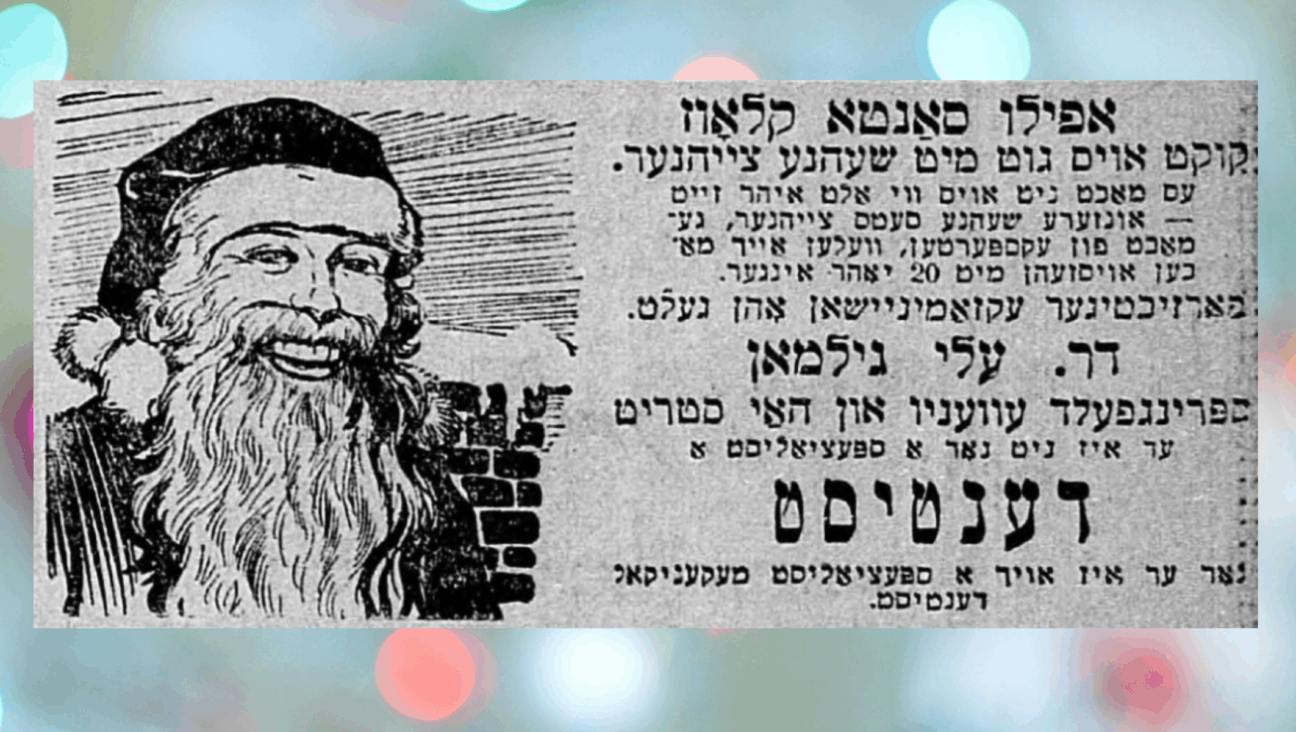Why Sukkot Is the Most Magical Holiday of All

Image by Nikki Casey
‘I can’t wait for Sukkot.” An expression of anticipatory excitement coming from a fellow member of my temple? Our rabbi? My Orthodox cousins? It was the 13-year-old son of our non-Jewish neighbors. And another piece of evidence of a remarkable phenomenon our family has discovered about the holiday: That it is magic.
No, it’s not a High Holiday. Yes, it comes so hard on the heels of Yom Kippur that you’ve barely digested your break-fast before you have to start eating festive meals again. And yes, those of us who grew up in less observant or secular households may find the notion of building a sukkah intimidating and strange.
But it is because Sukkot is less widely observed that and therefore for many people more intriguing and unusual — talk about nights different from other nights! — that it can work so many wonders.
When my husband and I became sukkah-builders — learn from our mistakes, skip the DIY plumbing pipe versions and get a kit from one of those Sukkahs-R-Us web sites — we discovered that it is a superhero of Jewish holidays.
You want to cement your children’s Jewish identity?
When our two daughters were young and inviting friends for Sukkot, so many kids wanted to come over that we set aside evenings just for kids and our daughters, who had become proud Jewish holiday hosts.
Now that our girls are in their 20s, the holiday holds a new, deeper appeal. Intense conversations under the stars and over a few bottles of wine—they’re in. They still bring friends, who covet the invitation; but now they join in the adult conversation, setting it to crackling with millennial energy. And Sukkot has become a major part of what defines them as Jews.
You want a holiday with deep spiritual meaning?
You don’t have to be motivated by the Biblical injunction to live in booths to find meaning in Sukkot. The symbolic possibilities are endless.
Gratitude for the harvest, appreciation of nature, a celebration of family and friendship — take your pick or add your own. Every year I take a moment to tell our gathering that for me, the sukkah is a reminder that what matters in life is not the possessions inside that house over there, but the friendship and love inside this little hut here.
And there is something about these nights in this hut, with the candles flickering in the dark and the scent of the pine boughs wafting down from the sukkah roof, that seems to slow time and deepen conversation.
Mission accomplished.
You like a holiday you can share with non-Jewish friends?
Non-Jews go wild for Sukkot. That weird thing being built on the deck, the carrying out of food out every night, the dinners eaten while wearing coats and hats—our friends and neighbors can’t get enough of it.
The neighbors, including their children (see above), are so taken with the holiday that we set aside an annual night in the sukkah for as many of them as we can squeeze in. One neighbor and his teenage son help my husband build the sukkah every year. Any year now these people are going to start asking why we don’t get a lulov and etrog.
All of this would be more than enough to cement Sukkot’s standing as a kingpin Jewish holiday. Dayenu, so to speak.
But that’s not all.
Sukkot is foolproof.
There is no weather condition that can ruin it, no outdoor dining crisis that can derail it. No matter what happens, Sukkot just ends up being different kinds of wonderful.
The temperature has dipped below freezing? So much the better. You and your friends will sit outside in down parkas, wrap your hands around steaming bowls of pumpkin soup and marvel at how you somehow feel warm.
Is it raining? Excellent. How often do you get to eat dinner in a light rain? And if it’s a heavy rain and you have to bail and everyone starts grabbing platters, laughing as they come inside soaking wet and opening another bottle of wine, that’s just another kind of excellent.
Did a raccoon wander into the sukkah and start brushing against unsuspecting guests’ feet under the table, at least until your daughter points this out and sparks a mass rush for the sukkah exit, as happened one year at our cousins’ sukkah?
What a great story! You’ll be telling it for years, as we still are.
We have had wind so fierce it pushed the sukkah partway across the deck. We have had rainstorms that formed mini-lakes in the tarp we unwisely tossed over the sukkah roof —don’t do this — and nearly dragged the sukkah down.
It was still wonderful.
And if the night is warm and the stars are out and the cicadas are singing and it’s all so perfect that your throat tightens — well, that’s okay, too.
Still on the sukkah fence? Listen:
You don’t have to worry about what to serve. In a sukkah, everything tastes wonderful.
You don’t have to worry about how your house looks—or even clean it. You are in your sukkah, and it looks great.
And what an entertainment bonanza! With 8 nights, you can have a different group and a different vibe in your sukkah every night.
Apologies to apartment dwellers who don’t have space to build a sukkah. But if you ever have a patch of yard or a deck, consider it. And watch Sukkot roll up its sleeves, flex its biceps and work its miracles.
Barbara Brotman is a former reporter and columnist for the Chicago Tribune.
















